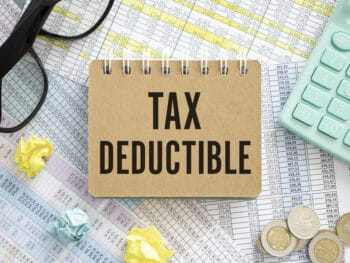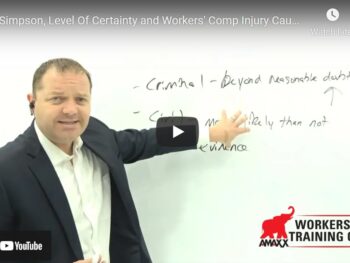A recent Board decision, not a court decision, ruled that when a worker provides the employer, or carrier, with a HIPAA for prior medical records that is compliance with an order that he provide the records himself.
There is nothing new about such a decision; except that it has long been forgotten what the rules are regarding subpoenas, directives by a judge, or a HIPAA release. But back to basics.
Basics of Medical Records Laws
The comp law does not provide for ALJ’s “orders”. Documents are produced buy a non-judicial subpoena, under WCL Sect 119. But a subpoena for medical records must be accompanied by a HIPAA release signed by the claimant.
Technically, once the carrier obtains the HIPAA, a subpoena may not be necessary, although many medical record offices are instructed to release nothing to a court or work comp board without a subpoena.
But there is no question that once a claimant provides the carrier with the HIPAA, the carrier has no cause to complain about having to issue the subpoena. Why? Again, there is no provision for “ordering” a claimant to produce any records.
In 1985, a claimant refused to cooperate with a subpoena to produce his IRS records for the years following his accident in “Morgen v CBS, Inc”. The Board closed the claim until the worker signed a release or produced the records himself. The Court upheld the Board’s approach, although the Board could have adjourned the claim until the carrier made a motion to enforce the subpoena in NY Supreme Court.
Casual Rules About Producing Records Are More Than Casual
The point of this little discussion is that the casual rules about producing records at the WCB are more than casual. They are not rules at all. The carrier, here, did its job, up to a point, but then failed to see that a claimant providing it with a HIPAA was compliance. Since the carrier wanted the records, it had the burden of issuing the subpoena.
The Board and court in the Morgen case ordered him to produce his own records, or furnish a release, only because he had already ignored a valid subpoena.
The subpoena rules will have to be complied with scrupulously under new federal regulations regarding all medical records.
Author: Attorney Theodore Ronca is a practicing lawyer from Aquebogue, NY. He is a frequent writer and speaker and has represented employers in the areas of workers’ compensation, Social Security disability, employee disability plans, and subrogation for over 30 years. Attorney Ronca can be reached at 631-722-2100. medsearch7@optonline.net
Editor Michael B. Stack, CPA, Director of Operations, Amaxx Risk Solutions, Inc. is an expert in employer communication systems and part of the Amaxx team helping companies reduce their worker’s compensation costs by 20% to 50%. He is a writer, speaker, and website publisher. www.reduceyourworkerscomp.com. Contact: mstack@reduceyourworkerscomp.com.
©2013 Amaxx Risk Solutions, Inc. All rights reserved under International Copyright Law.






















